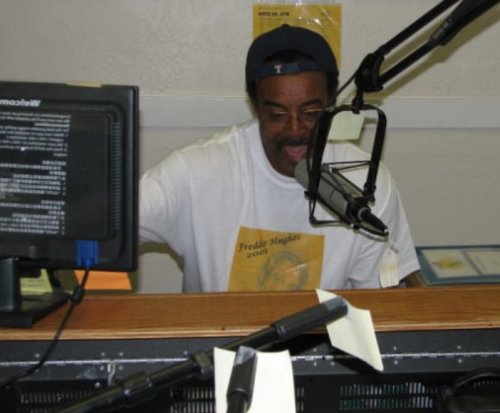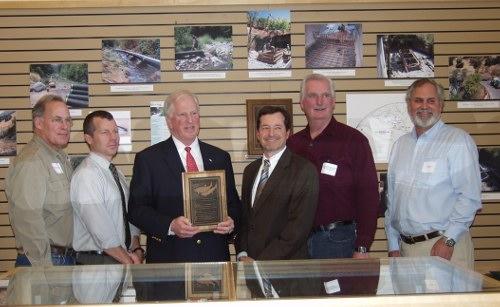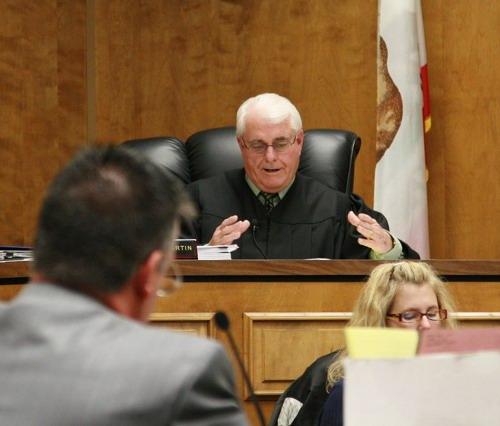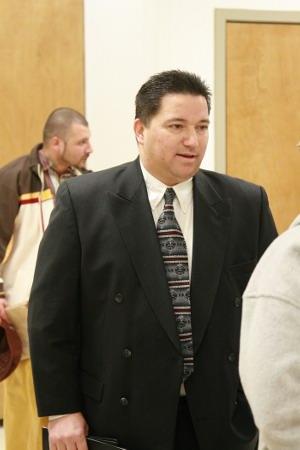- Ross A. Christensen
- Posted On
Foodie Freak's March events compendium
I called many businesses to formulate this list; some of them told me to “check our Web site” but when I did they had no current events posted, so I am sorry if I missed any.
Many thanks to the Lake County Visitor Information Center and the Lake County Marketing Department who compiled much of this information.
As a special note, the Moore Family Wineries Irish feast on March 14 needs an RSVP by March 1, so if you intend to attend let them know ASAP.
March 1: Fish Fry, Howard’s Grotto, Clearlake. Lioness Club benefit for community projects and scholarships. $8 at the door. 3 p.m. to 7 p.m. 994-0441.
March 1: Sunday Brunch in the Garden, The Blue Wing, Upper Lake. Brunch served 10 a.m. to 3 p.m. George Husaruk will be playing the flute, 11:30 a.m. to 2 p.m. 275-2244.
March 2: Monday Blues, The Blue Wing, Upper Lake. 6:30 p.m. to 9 p.m. Blues Farm will perform. 275-2244.
March 3: Meet the Winemaker, The Saw Shop, Kelseyville. 6 p.m. Robleto Winery. 278-0129.
March 6: Meet the Winemaker, The Blue Wing, Upper Lake. 6 p.m. to 9 p.m. Jed Steele and Joy Merrilees will be pouring Steele Wines.
March 7: Pruning & Pastries, Six Sigma Ranch, Vineyards & Winery, Lower Lake. 10 a.m. to noon. Vineyard Manager David Weiss demonstrates hands-on winter pruning. $10 per person, pastries will be served. Reserve a space by March 5. 994-2086.
March 8: Sunday Brunch in the Garden, The Blue Wing, Upper Lake. Brunch served 10 a.m. to 3 p.m. Stephen Holland on guitar and vocals, 11:30 a.m. to 2 p.m. 275-2244.
March 9: Monday Blues, The Blue Wing, Upper Lake. 6:30 p.m. to 9 p.m. Hanson Raitt Band will perform. 275-2244.
March 14: Wine Tasting and Art Show, Best Western El Grande Inn, Clearlake. 5 p.m. to 8 p.m. Seventeenth annual event featuring local wines and exhibitions from local artists. Silent auction, raffle, door prizes and music. Benefit for the Park Study Club’s scholarship fund. Tickets are $20. 995-9316.
March 14: Irish Feast with Molly Brennan’s, Moore Family Winery. A three course Irish feast with wine and live Irish music at the Moore Family Winery’s Tasting Room. $40 per person. RSVP to Stepheny by March 1. 738-0507
March 15: Sunday Brunch in the Garden, The Blue Wing, Upper Lake. Brunch served 10 a.m. to 3 p.m. Travis Austin will be playing flamenco guitar, 11:30 a.m. to 2 p.m. 275-2244
March 16: Monday Blues, The Blue Wing, Upper Lake. 6:30 p.m. to 9 p.m. Twice As Good will perform. 275-2244.
March 21: Winemaker’s lunch, Ceago Winery, Nice. 11 a.m. to 2 p.m. Jim Fetzer will host a luncheon celebrating the spring equinox with a food prepared by Chef Nicolas. Wine club members; $40; nonmembers, $50.
March 22: Sunday Brunch in the Garden, The Blue Wing, Upper Lake. Brunch served 10 a.m. to 3 p.m. Chris Forshay on guitar and vocals, 11:30 a.m. to 2 p.m. 275-2244.
March 23: Monday Blues, The Blue Wing, Upper Lake. 6:30 p.m. to 9 p.m. Levi Lloyd Band will perform. 275-2244.
March 27: Lake Wind Ensemble, Tallman Hotel, Upper Lake. Featuring Beth Aiken on oboe, Ann Hubbard on bassoon and Nick Biondo on clarinet. Pam Prisco will pour Steele Wines. Tickets to this event can be obtained by calling the Tallman Hotel reception desk at 275-2244. The cost for each reception and concert is $40.
March 28 and 29: The Fifth Annual Tulip Festival, Tulip Hill Winery, noon to 4 p.m. Live music, wine, food and winery tours and 50,000 tulips will be in bloom. $25 in advance $30 the day of the event.
March 29: Sunday Brunch in the Garden, The Blue Wing, Upper Lake. Brunch served 10 a.m. to 3 p.m. Sarah Tichava on guitar and vocals, 11:30 a.m. to 2 p.m. 275-2244.
March 29: Wine Tasting Basics, Moore Family Winery, Gary Johnson will be matching MFW with small bites, free logo glass and wine wheel. 5 p.m. to 7 p.m. $25. RSVP to Stepheny by March 25. 738-0507.
March 30: Monday Blues, The Blue Wing, Upper Lake. 6:30 p.m. to 9 p.m. Lake Blues All-Stars will perform. 275-2244
Ongoing activities
The New Cool at Konocti Harbor featuring David Neft. Konocti Harbor hosts “The Piano Man” David Neft, playing the grand piano from 6 p.m. to 9 p.m. every Friday and Saturday in the relaunched dining room. www.konoctiharbor.com.
Langtry Estate and Vineyard is offering exciting and innovative tour programs. Guests ride in battery-operated Global Electric Motorcars. Tours are offered Tuesday through Saturday. The Tephra Vineyard Lunch Tours are offered at 11 a.m. and 1 p.m. $40 per person includes lunch and wine tasting. 21000 Butts Canyon Road. Reservations required 24 hours in advance. Info: 987-2385.
Tuscan Village Friday Concert Series, Main Street, Lower Lake. Live music, food, wine tasting. Presented by 2Goombas and Terrill Cellars. 5:30 p.m. to 8:30 p.m. Info: 994-3354.
Beer Master Dinner Series, Molly Brennan’s 175 N. Main St., Lakeport. Second Tuesday of each month, 6:30 p.m. to 9:30 p.m. Different brewery featured each month, with beers paired with each course of a five-course meal including dessert. Advance reservations required. Info: 262-1600.
If you have a food or wine related event and would like to have it listed in the coming months, please feel free to call Ross at 998-9550.
{mos_sb_discuss:2}













